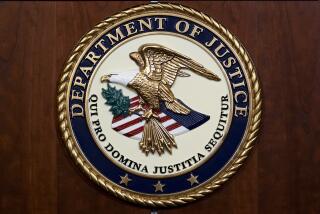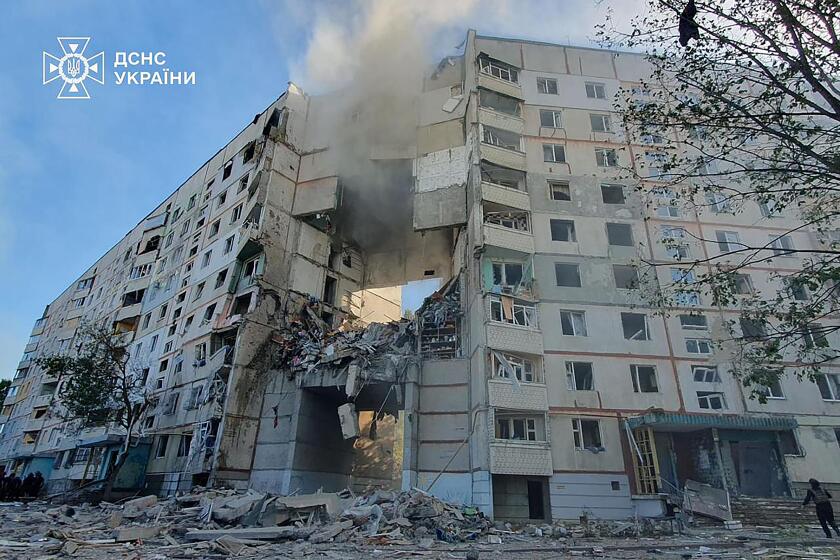Bahrain edgy after clashes pit Shiites against security forces
An uneasy calm returned to the oil-rich Persian Gulf island nation of Bahrain on Wednesday after a week of clashes between Shiite Muslim opposition groups and forces of the Sunni-dominated government.
The street fighting, sparked by the death of an activist, was some of the worst since a 1990s Shiite uprising and led to an undetermined number of injured and the arrest of dozens.
“This is something that will not go away very easily,” said Mansoor Jamri, editor in chief of Al Wasat, a daily newspaper in the capital, Manama. “The death of one person is not something to be forgotten.”
Wealthy and relatively cosmopolitan, Bahrain, with a population of more than 700,000, is a strong American ally and home to the U.S. Navy’s 5th Fleet, which patrols the Persian Gulf. But it is also badly divided: Its majority Shiite population complains of political and economic discrimination at the hands of the Sunni-dominated minority that makes up the ruling Khalifa royal family, dominates security forces and controls the most powerful government positions.
At the height of the clashes, over the weekend, security forces battled more than 1,000 demonstrators lobbing Molotov cocktails, setting tires on fire and smashing shop windows with iron bars, according to witnesses, local journalists and official press accounts. Photographs showed masked, black-clad young men tossing objects at white-helmeted police officers, smoke rising behind.
The government accused the demonstrators of stealing two semiautomatic assault rifles from a police vehicle that they then set ablaze. At least one police officer was seriously injured in the clashes, according to the official Bahrain News Agency.
Police responded by arresting suspected demonstrators. On Wednesday, leaders of one Shiite opposition faction began a hunger strike to protest the crackdown. Relatives of those arrested crowded around the prosecutor’s office Tuesday before police forced them to leave.
Bahrain’s Shura Council, or upper house, condemned the clashes in a statement issued Monday.
The unrest began Dec. 17 during an annual commemoration of a 1994 clash between security forces and Shiite protesters that left two activists dead. This year, police fired tear gas at demonstrators. One, Ali Jassem, 31, ran home, complained of chest pains and died shortly afterward.
Although the cause of Jassem’s death had not -- and still has not -- been determined, angry demonstrators erupted into the streets on subsequent days. Opposition groups, especially the Haq movement, decried Jassem’s death as “murder” committed by the security forces.
“This was more or less a normal clash that takes place every Dec. 17,” said Ebrahim Sharif Alsayed, an official of the National Democratic Action Society, a small secular opposition group. “The death of a person triggered the bigger riots.”
Alsayed and other opposition figures said government heavy-handedness caused a small demonstration to escalate into a melee on a larger scale. But government officials defended the behavior of the security forces and accused protesters of taking to the streets without a proper permit and bypassing legal mechanisms for lodging grievances.
“The rioters were a group of undisciplined youth who decided to act outside the legal framework,” said a Bahraini official, speaking on condition of anonymity because he was not authorized to speak to the press.
“Since the king has carried out reforms, opposition groups can talk freely and become part of the Council of Representatives,” he said, referring to the lower house of the Bahraini parliament, which has advisory powers. “Unfortunately some groups decided to violate the laws and security forces were forced to act to stop them.”
He said the unrest broke out in three small areas in and around the capital and had been contained. Analysts said the occasional clashes that occur between certain opposition groups and security forces serve as a distraction from the substantive problems that persist in Bahrain, including unemployment, income disparities and a natural-gas shortage that forces the country to import from Iran.
Iranian Foreign Minister Manouchehr Mottaki, on a visit to Manama, signed an economic cooperation deal Wednesday. Many fear that Iran, which views itself as the protector of Bahrain’s Shiites, and Sunni extremists in Saudi Arabia are playing out their rivalry in the country.
“There are certain fundamentalist elements on both sides that fuel these riots,” said George Williams, editor of the English-language Manama-based Gulf Daily News. “It flares up from time to time.”
--
Special correspondent Raed Rafei contributed to this report.
More to Read
Sign up for Essential California
The most important California stories and recommendations in your inbox every morning.
You may occasionally receive promotional content from the Los Angeles Times.










